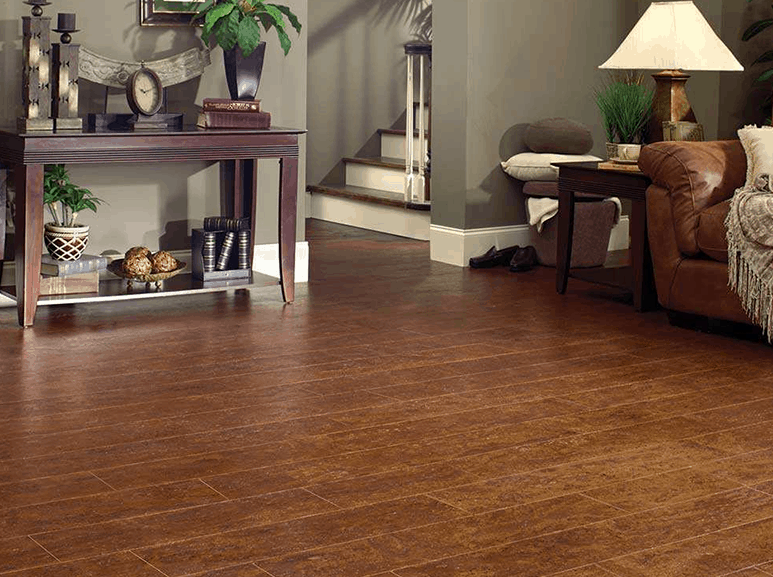
Choosing Eco-Friendly Flooring can seem daunting, but it doesn’t have to be. This guide will help you navigate the world of sustainable flooring options, ensuring you make the optimal choice for your home and the planet. Many people are now more conscious of their environmental impact, and flooring is a significant part of home construction and renovation. Traditional flooring options often involve harmful chemicals and unsustainable practices. This guide will explore a scope of eco-friendly alternatives, helping you determine the perfect solution for your needs, from the durability of bamboo flooring to the warmth of cork. We’ll cover various materials, highlighting their benefits, drawbacks, and overall environmental impact, making your decision process smoother and more informed.
Bamboo Flooring: A Sustainable Choice
Durability and Aesthetics of Bamboo
Bamboo flooring offers exceptional durability, comparable to hardwood, and its warm, natural tones add a touch of elegance to any home. Its fast-growing nature makes it a highly sustainable resource, often harvested without harming the environment. Numerous studies show the remarkable strength-to-weight ratio of bamboo, making it an excellent choice for high-traffic areas.
Environmental Impact and Sourcing
It’s crucial to select responsibly sourced bamboo flooring, certified by organizations like the Forest Stewardship Council (FSC), to ensure sustainable harvesting practices and minimal environmental impact. Look for certifications that guarantee the bamboo was grown and processed sustainably. Improper harvesting can negatively affect the environment and the people of the region where bamboo is grown.
Installation and Maintenance
Bamboo flooring is relatively easy to install, much like hardwood, making it suitable for DIY projects. Regular sweeping and occasional mopping keep it looking its optimal. With proper care and maintenance, bamboo flooring offers years of beauty and resilience. For high-traffic areas, consider bamboo flooring that’s been specially treated for boostd durability.
Cork Flooring: Natural Warmth and Comfort
Unique Properties of Cork
Cork flooring offers a unique blend of comfort, durability, and sustainability. Its natural elasticity offers cushioning underfoot, reducing fatigue, and its noise-reducing qualities make it ideal for homes with children or pets. The unique cellular structure of cork makes it resilient to dents and scratches, making it exceptionally durable.
Sustainability and Environmental benefits
Cork is harvested from the bark of the cork oak tree without harming the tree itself. This renewable resource makes cork flooring an environmentally friendly choice with a low carbon footprint. The harvesting process actually benefits the cork oak trees, improving their health and promoting longevity. Cork is therefore one of the most sustainable flooring materials available.
Installation and Maintenance
Cork flooring is relatively easy to install, often using a floating floor system, minimizing the need for adhesives. Regular sweeping and spot cleaning are sufficient for maintenance. Cork flooring’s natural resistance to water and stains is also a significant plus.
Recycled Materials: Giving Waste a New Life
Flooring Made from Recycled text
Several manufacturers now offer flooring options made from recycled materials. These include reclaimed wood, recycled rubber, and post-consumer plastics. This is one of the most sustainable options for flooring, effectively reducing landfill waste and using already-existing materials rather than creating new ones.
Environmental benefits of Recycled Flooring
The environmental benefits of recycled flooring are significant. By using recycled materials, manufacturers reduce the demand for virgin resources, conserving natural resources, reducing energy consumption and minimizing carbon emissions. The production of recycled materials uses less energy than manufacturing new materials.
Durability and Aesthetics of Recycled Materials
The durability and aesthetics of recycled flooring vary depending on the materials used. Some recycled options can be as durable as traditional materials, while others offer a more rustic or industrial look. The specific material used is crucial in establishing the aesthetics and durability.
Linoleum: A Classic, Sustainable Choice
Linoleum’s History and Composition
Linoleum has a rich history as a sustainable flooring option. Made from natural materials like linseed oil, rosin, wood flour, and jute, it offers durability and beauty. This entirely natural material is biodegradable and recyclable.
Sustainability and Environmental Impact
Compared to vinyl, linoleum boasts a significantly lower environmental impact. It requires fewer resources and emits fewer volatile organic compounds (VOCs) during manufacturing and installation, contributing to cleaner indoor air quality. Many linoleum products have certifications for sustainability and environmental impact.
Durability and Maintenance
Linoleum flooring is exceptionally durable, known for its resistance to scratches and stains. Proper maintenance involves regular cleaning with a mild soap and water solution. Its durability makes it an economical and long-lasting choice.
Choosing the Right Eco-Friendly Flooring for Your Home
Factors to Consider: Budget, Lifestyle, and Environment
selecting the optimal eco-friendly flooring involves careful consideration of several key factors. Your budget will help narrow down your options, while your lifestyle will influence your choice between softer or more durable materials. The specific needs of your room should also be a consideration.
Comparing varied Eco-Friendly Flooring Options
Comparing materials like bamboo, cork, recycled materials, and linoleum means assessing their durability, maintenance requirements, cost, and environmental impact. study specific products and certifications to ensure their sustainability credentials.
Professional Installation vs. DIY
Consider whether you’ll install your flooring yourself or hire a professional. Some materials, like bamboo or cork, are suitable for DIY projects, while others might require professional expertise for optimal outcomes. A professional installation also offers a warranty.
Choosing eco-friendly flooring is a significant step towards creating a healthier home and a more sustainable future. We’ve explored various options, from bamboo and cork to recycled materials and linoleum, each offering unique benefits and considerations. Remember to factor in your lifestyle, budget, and the specific needs of your space when making your decision. Ready to transform your home with sustainable style? Start exploring the options discussed today and find the perfect eco-friendly flooring for your project!
